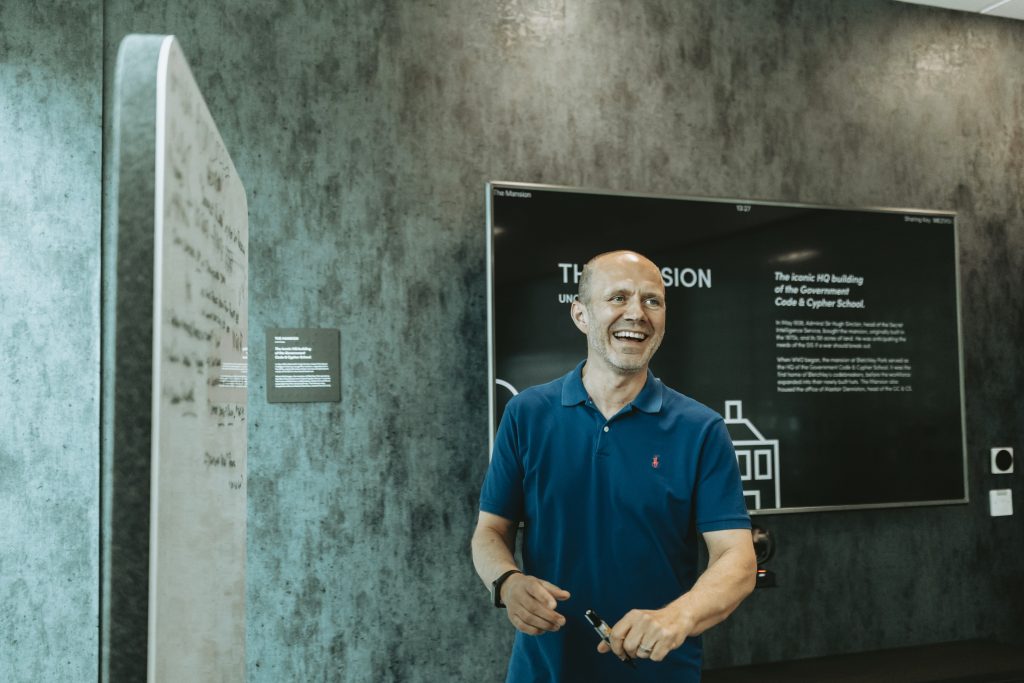Generative AI must now make way for the latest innovation in the field: Agentic AI. As the buzzword among technology leaders, TI interviewed experts from Capgemini, Gartner, Oracle, and IBM to explore their predictions for what this emerging technology will achieve in the year ahead.
Rise of Agentic AI and its evolution
Pascal Brier, chief innovation officer, Capgemini
“Generative AI is now entering the dawn of ‘agentification’ where AI systems are evolving from isolated tasks to specialised, interconnected agents. In fact, according to a Capgemini Research Institute survey of 1,500 top executives globally, 32% of them place AI agents as the top technology trend in data & AI for 2025.
“Thanks to the increasing capabilities of logical reasoning in Gen AI models, these will start operating more autonomously while providing more reliable, evidence-based outputs, and will be able to manage tasks such as supply chains and predictive maintenance without constant human oversight.
“The next step will be the rise of a superagent – an orchestrator of multiple AI systems, optimising their interactions.”
Steven Webb, UK chief technology and innovation officer, Capgemini
“In 2025, we’ll see wider adoption of small language models (SLMs) and AI agents as we move into an era of Agentic AI… Using multiple SLMs across a tool chain will play a pivotal role in the evolution of AI, going beyond the already familiar large language models (LLMs) like GPT.
“Another development that I’m excited about is the rising adoption of Agentic AI. Multi-agent systems, where multiple AI agents work collaboratively to solve complex tasks, will become a major player within the next few years.”
Alan Jacobson, chief data and analytics officer, Alteryx
“The year of Agentic AI, 2025 will see the rise of generative AI agents used to solve problems — an approach that is made possible by decreasing costs and increasing the performance and speed of LLMs.
“Frameworks for orchestrating Agentic AI work will emerge, and a large percentage of use cases will begin to employ this approach. Envision one LLM crafting software code while another ensures it’s secure, a third checks for style rules, and a fourth optimises for performance.”

Alan Jacobson, chief data and analytics officer, Alteryx
Chris Royles, EMEA field CTO, Cloudera
“Agentic AI is set to drive a wave of innovation, transforming real-time problem-solving and decision-making. Expect these AI agents to optimise tasks with ant-like efficiency, navigating challenges quickly and adapting in real-time. This will see businesses building event-driven architectures that allow AI to react instantly to real-life events, revolutionising industries like telecoms and logistics.”

Chris Royles, EMEA field CTO, Cloudera
Adonis Celestine, senior director, Applause
“Despite its promise to streamline work, cut costs and free up time, automation has not really delivered the productivity boost people imagined. While Gen AI has already driven automation forward through its code creation ability, it could not execute actions autonomously on the user’s behalf.
“This will all change with Agentic AI, which integrates with existing systems to perform actions. The combined power of generative and Agentic AI means we can now automate entire processes end-to-end.”
Graham Glass, CEO and founder, CYPHER Learning
“We will see a shift from AI co-pilots toward intelligent agents, but mass adoption will hinge on the quality and relevance of training. AI agents will take a more active role interacting with their environments, even fulfilling additional rudimentary tasks. This development could unleash human potential, allowing workers to be much more productive. But for this to happen, businesses will need to get users onside and using the technology.”
Rahul Pradhan, VP, product and strategy, Couchbase
“In 2025, the trajectory of AI will be shaped by the rise of Agentic AI — proactive, intelligent agents. With capabilities such as understanding context, setting goals and adapting actions, Agentic AI can complete tasks previously thought impossible by AI.

Rahul Pradhan, VP, product and strategy, Couchbase
Impact on specific sectors
Tomer Zuker, VP marketing, D-ID
“The evolution of AI in 2024 laid the foundation for creating hyper-realistic digital twins through advanced avatars. In 2025, we expect these digital twins to become a widespread phenomenon, with individuals in various industries adopting them for specialised purposes. These avatars can be trained in specific knowledge domains, programmed with unique traits and capabilities, and utilised to perform tasks on behalf of their human counterparts.”
Steven Webb, UK chief technology and innovation officer, Capgemini
“I expect the healthcare and pharmaceutical sectors to benefit most from AI advances. As early adopters, these industries lead in AI agent adoption and are likely to see the greatest rewards.
“AI agents will revolutionise healthcare by managing tasks such as appointment scheduling, patient care, monitoring vital signs, administering medication, and providing personalised treatment. This will enhance service efficiency, reduce human error, and improve patient outcomes, positioning healthcare as a frontrunner in AI-driven innovation.”
Markus Nispel, chief technology officer EMEA, Extreme Networks
“In 2025, AI-driven autonomous agents will start to enter the networking market, after being successfully used in other business processes, such as Salesforce’s AgentForce and Microsoft Co-Pilot Agents. These AI agents will transform all stages of the user journey from planning to operations and optimisation in both networking and security. They will simplify operations and lower the entry barrier for newcomers, automate migrations and expansions and improve the service levels that can be delivered by the networking team.”
AI in business ops and automation
Andie Dovgan, chief growth officer, Creatio
“The rapid expansion of AI tools has led to a mess of specialised solutions that don’t play nicely together. By 2025, businesses will demand unified AI stacks—platforms that orchestrate machine learning, generative AI, and agentic automation seamlessly. This convergence will power end-to-end automation that businesses can trust to handle complex, multi-step processes without missing a beat.”
Claus Jepsen, chief product and technology officer, Unit4
“There’s been a lot of hype around these agents this year, but we’re going to have to monitor how this technology comes to fruition in the next year to see if the hype matches the reality.
“Small faceless applets have existed for some time, using APIs to automate workflows. I would be curious to see how different these agents are from that principle. Yes, these agents will have added functionality thanks to machine learning, but the underlying principle feels quite like RPA.”

Claus Jepsen, CPTO, Unit4
Brian Kohlmann, lead, marketing technology, Bader Rutter
“In 2025, AI will transition from being mostly generalised to highly specialised. Industry-specific AI agents, trained on domain-specific data and designed for niche functions, will come to the forefront.
“In healthcare, for instances, AI agents will offer advanced diagnostic support, while in manufacturing, predictive maintenance bots will optimise machinery uptime.
“Retrieval-Augmented Generation (RAG) systems, combining the power of large language models with real-time access to proprietary databases, will redefine knowledge work. Businesses will prioritise integrating AI directly into their workflows, moving beyond experimentation to practical, revenue-generating implementations.”
Miranda Nash, group VP, applications development & strategy, Oracle
“In 2025, the most productive employees will work alongside AI agents. These agents will become productivity multipliers, autonomously executing complex workflows using a range of enterprise software tools on behalf of employees.
“Managing, monitoring, and interacting with AI agents will become the new normal in fast-moving early-adopter organisations. AI agents will facilitate new ways for us to engage with enterprise systems.
“While traditional user experience won’t disappear, employees will spend less time inputting text into text fields and clicking through screens, and will instead use natural language to request insights, authoring suggestions, and recommended actions from agents.”
Mike Beckley, founder and CTO, Appian
“Next year, enterprises will adopt Gen AI with greater frequency. This will be due to its large-scale integration into processes and workflows. This will give rise to Agentic AI.
“AI is more effective in a structured process. It needs enterprise-wide data access from a data fabric. It also needs human and digital collaborators. Finally, it needs powerful, predefined, and actionable actions. This is especially true when the job is complex and the tolerance for error is low.
“Embedding Agentic AI—an AI that autonomously responds to stimuli—within structured processes can ensure it works well. Businesses can do this. It uses data access, boosts collaboration, and provides actions to maximise ROI.”
Human-AI interaction and trust
Graham Glass, CEO, CYPHER Learning
“Building trust with agents could be difficult. 45% of workers already worry about their job security because of AI, and 33% want AI banned in the workplace, seeing it as a ‘foe’ rather than friend. Moreover, digital divides are already emerging around AI.
“Men, younger employees and senior management are more likely to benefit from AI and to have had training around the tech compared to over 55s, women and unskilled manual workers.”
Chris Royles, EMEA field CTO, Cloudera
“Currently AI still falls short of replicating human-level decision-making, but next year that is set to change with Agentic AI. Agentic AI’s ability to run complex simulations will enable organisations to plan, test, and optimise faster than ever, offering real-time actionable insights.
“For instance, we will see telecom networks become smarter, where AI can anticipate disruptions like storms, enabling proactive steps to be taken to minimise potential service disruption, while also enhancing the overall customer experience in unexpected ways.”
AI in CX and personalisation
Liz Centoni, chief customer experience officer, Cisco
“In 2025, AI won’t just be a tool; it will be a collaborator. Many AI-powered tools in use today are based on static rules or datasets. Agentic AI differs in that it can continuously learn from user inputs and integrate contextual information and make decisions with little to no human oversight.
“Imagine a CX AI that predicts user needs before a query is made, or a network management AI that identifies potential issues and resolves them autonomously, ensuring uninterrupted service.
“These AI agents will not just interact with humans or devices directly, but will also be able to discover, learn, and collaborate with each other to form complex workflows and/or chains of operations to automate even advanced business functions.”
Security, risk management and governance
Steve Salvin, CEO and founder, Aiimi
“Tech’s next biggest trend, ‘Agentic AI’, is the self-driving car of Large Language Models. The Nvidia and Gartner-backed AI system uses context and feedback from its environment to inform complex decisions and complete tasks with minimal supervision. The opportunities to drive efficiencies are clear. But so are the risks of having nobody behind the steering wheel.
“Companies looking to leverage Agentic AI safely and successfully in 2025 must therefore have certain guardrails in place. By using explainable models, teams can put routine checks and balances in place. And by using the high-quality data AI needs to generate high-quality results in the first place, teams can ensure that minimal intervention is needed.
“Since few companies have their data in order right now, few companies are ready to adopt Agentic AI or the hotly anticipated GPT-5. Automated data governance and information retrieval tools will become essential as companies vie to establish accurate, relevant, and secure information before safely reaping the rewards of new AI tools.”

Steve Salvin, founder and CEO, Aiimi
Ritika Gunnar, general manager, Data & AI, IBM
“As agentic AI emerges as a predominant theme in 2025 – marking a fundamental shift from traditional AI tools to proactive agents and teams of agents – so too will questions around accountability and control of these increasingly autonomous systems.
This will bring greater attention to the guardrails, processes, and tools for how we govern agents, to build trust for this powerful new frontier of AI capabilities. It will also heighten the need to upskill employees across every discipline and leadership level so they can responsibly develop, use, and oversee agentic solutions.”
Daryl Plummer, VP analyst, Gartner
“With AI agents expanding the attack surface for enterprises, new security and risk solutions will be essential to guard against both external hackers and malicious internal actors.”